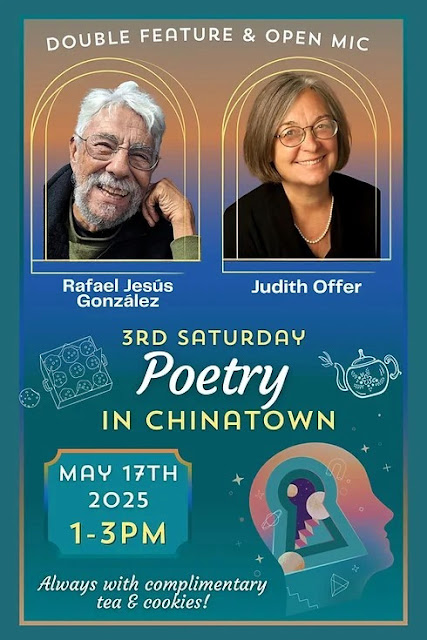En 1986 en Sevilla visitando un museo con un amigo, me topé con las fotografías de un fotógrafo brasileiro que me dejaron atónito —Sebastião Salgado. Comencé a coleccionar sus fotografías (vía el inter-net) hasta tener cienes. Murió el 23 de mayo. Siento otro agujero en el corazón.
En el Día de San Valentín, Día del amor, después de ver otra exposición de su obra en Berkeley en 2002 sobre ‘migraciones’, escribí el poema:
Mirando las fotografías
de Sebastião Salgado
el día de San Valentín
Se acostumbra en este día
enviar a los amados
la imagen del corazón,
San Sebastián de las cartas,
atravesado por jaras.
En este matrimonio
del sufrimiento y la belleza
hay injuria.
En el negro y el blanco desolado
uno ve rojo.
No hay palabras,
sólo el hervir de la sangre
y una desesperación profunda
una gran angustia de piedad
y una gran ansia en el corazón
por justicia.
Tales son estas tarjetas
de San Valentín
a la Tierra.
Rafael Jesús González
Círculo de poesía 9; Roberto Bianchi, director;
aBrace editor, Montevideo, Uruguay 2008;
derechos reservados del autor
En una conferencia que presentó en la Universidad de California, Berkeley dijo:
En cuanto a mí, saliendo de la exposición en Sevilla, no fue el yo que había entrado.
Buscando una de las tantas fotografías de Salgado que tengo en mi computadora para compartir, opté por una que había visto en Sevilla por primera vez hace ya 39 años: vista del infierno tomada en la mina de oro en Serra Pelada en Brasil. No digo más.
On Valentine's Day, the Day of Love, after seeing another exhibition of his work in Berkeley in 2002 on "migrations", I wrote the poem:
Seeing the Photographs
of Sebastiáo Salgado
on St. Valentine’s Day
It is customary on this day
to send loved ones
the image of the heart,
St. Sebastian of the cards,
transfixed by arrows.
In this marriage
of suffering & beauty
there is outrage.
In the stark black & white
one sees red.
There are no words,
only the boiling in the blood
& a deep desperation
a great anguish of pity
& a great yearning in the heart
for justice.
Such are these Valentine cards
to the Earth.
© Rafael Jesús González 2025
In a lecture he gave at the University of California, Berkeley, he said:
As for me, leaving the exhibition in Sevilla, it was not the me who had entered.
Looking for one of the many Salgado photographs I have on my computer to share with you, I chose one I had first seen in Seville 39 years ago: a view of hell taken at the Serra Pelada gold mine in Brazil. I'll say no more.






















%2B%5B%2B.jpg)




